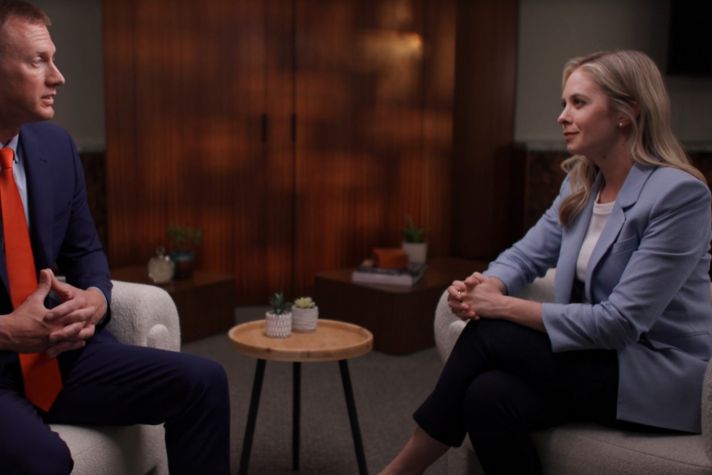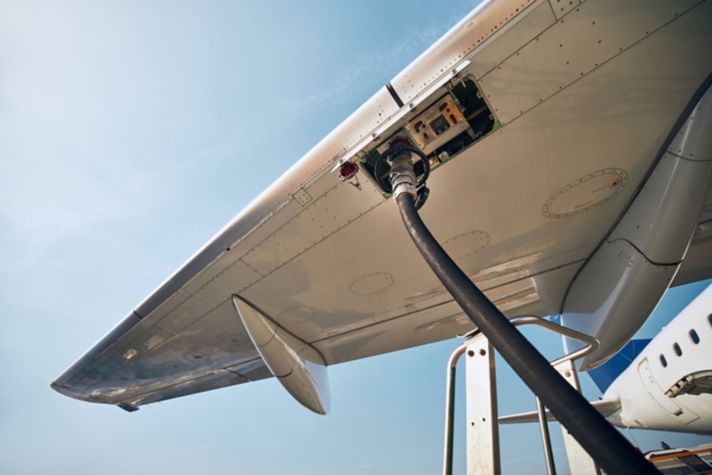-
Global
-
Africa
-
Asia Pacific
-
Europe
-
Latin America
-
Middle East
-
North America
- |
- BUSINESSES
- |
- Contact
- |
-
Global
-
Africa
-
Asia Pacific
-
Europe
-
Latin America
-
Middle East
-
North America
- |
- BUSINESSES
- |
- Contact
- |
You are browsing the product catalog for
You are viewing the overview and resources for
- News
- 6 Executive Takeaways from Davos 2023
6 Executive Takeaways from Davos 2023
Honeywell executives recap key issues discussed at this year’s World Economic Forum Annual Meeting.
More than 2,700 leaders, including over 350 heads of state, government figures and ministers, convened at the 2023 World Economic Forum (WEF) Annual Meeting in Davos, Switzerland, from January 16 to 20.
The annual gathering provides a platform for discussion around the strategic next steps toward solving the world’s most pressing challenges; this year through the lens of Cooperation in a Fragmented World, underscoring the need for meaningful public-private sector partnership.
Discussions explored what policies are needed to stabilize the global economy and plenty of forward-looking dialogue on the most critical geopolitical imperatives. There was also a major focus on how to make critical progress on climate action. Innovation and technology were a constant in determining solutions that can help solve the climate crisis while at the same time fostering fairer and more inclusive societies.
Failure to adapt to and mitigate climate change was highlighted as one of the biggest challenges facing the world in the next decade, according to the forum’s 2023 Global Risks Report.
The Honeywell delegation attended dozens of customer and partner meetings and met with government leaders over the course of the week. We asked our executives in attendance to reflect on their key insights from this year’s WEF and why they matter:
Regardless of economic trends, sustainability remains a priority
“I have not heard any customers say they are cutting their budgets for renewables spend or alternative fuels. I don’t think there is a correlation between a tougher economy and a divestiture of a path to sustainability. Because everyone has to get there. Whether it’s 2030, 2040, or 2050, everyone has a pledge to be carbon neutral and you have to start now and keep investing every year to get there.”
- Darius Adamczyk, Chairman and CEO
Organizations need to start improving Scope 1 and Scope 2 emissions
“The biggest shift I noticed at WEF this year was an increased urgency around sustainability action, including a focus on the adoption of new technologies capable of driving the energy transition. Organizations know they need to act now – whether that is public or private companies, governments, or any other type of organization — there is a clear focus on reducing Scope 1 and 2 emissions. Getting the economics of the solutions to this challenge in place is a priority, and it is why we are so well-positioned to help customers in this area. We have the right portfolio of ready-now solutions, from building technologies to flow batteries, from our Solstice line of low-global warming-potential refrigerants, to digital technologies for more efficient operations, that can help everyone get there.”
- Vimal Kapur, President and Chief Operating Officer
Progress is dependent on innovation and cooperation
“We cannot advance sustainability pledges at a national level without innovation from the private sector. Organizations are already working across a vast portfolio of sustainability-focused technologies, from innovative systems to make urban infrastructure smarter and less energy intensive, to decarbonization offerings and solutions for harnessing alternative fuel sources such as hydrogen and renewables.
But, the public sector must also innovate. Advances in regulatory and policy frameworks and financial structures are key to creating the market conditions for sustainable technology to flourish and to ensure continued private sector investment in the most emerging areas.”
- Anne Madden, SVP and General Counsel
The world needs Honeywell and the innovation we’re driving
“There were two major takeaways from WEF: First, the world needs Honeywell. While many believe industrials have stopped innovating, business leaders around the world view us as the exception. We must continue to lead in innovation.
“Our autonomous solutions can strengthen resiliency, enhance productivity, and ensure safety. Our digitalization offerings instrument the underlying business processes and unlock the power of big data in operational environments. This helps pinpoint improvement opportunities and unearth hidden patterns of behavior. We can then apply our Forge platform to visualize, control and improve those processes to deliver continuous process improvement and efficiency.
“Second, Honeywell has many solutions today for the biggest challenges the world is facing. We are a leader in sustainability offerings – ready now – that deliver sustainable fuels, cleaner power generation and storage, reduced energy usage, lower greenhouse gas emissions, plastic circularity and other outcomes to make the world a better place to live and help ensure the earth survives us.”
- John Waldron, SVP and Chief Commercial Officer
Technologies like hydrogen & SAF will enable a carbon-neutral economy
“In speaking with customers during WEF, the message we heard was consistent and clear; advancing Sustainable Aviation Fuel (SAF) is a critical route to advancing the sustainability credentials of the aviation industry.
However, scaling up SAF production to meet the industry’s climate ambitions depends on multistakeholder collaboration and incentives. Similarly, there is a lot of excitement around the value that hydrogen offers as fuel of the future, but there is also work to do here if we broadly leverage the huge potential hydrogen represents.
Honeywell is at the forefront of these exciting technologies, and we are going to continue on a path of innovation, alongside industry and the public sector, to ensure the value of these technologies can be realized as quickly, efficiently and equitably as possible.”
- Lucian Boldea, President and CEO, Performance Materials and Technologies
Routes to sustainability aren’t the same for every country or company
“The world is looking for ready-now and workable sustainability solutions, and Honeywell has a suite of technologies that address different parts of economic activity. This lets us be part of the solution in the broadest set of geographies possible which is critical because – though we are all on the same journey – everyone’s road to get there will not be the same. Different technologies are of different interests across the regions as each manages their own priorities, and we will continue to innovate offerings that are proven and relatively straightforward to implement to continue on this path.”
- Ben Driggs, President of Global High Growth Regions
Copyright © 2026 Honeywell International Inc.




